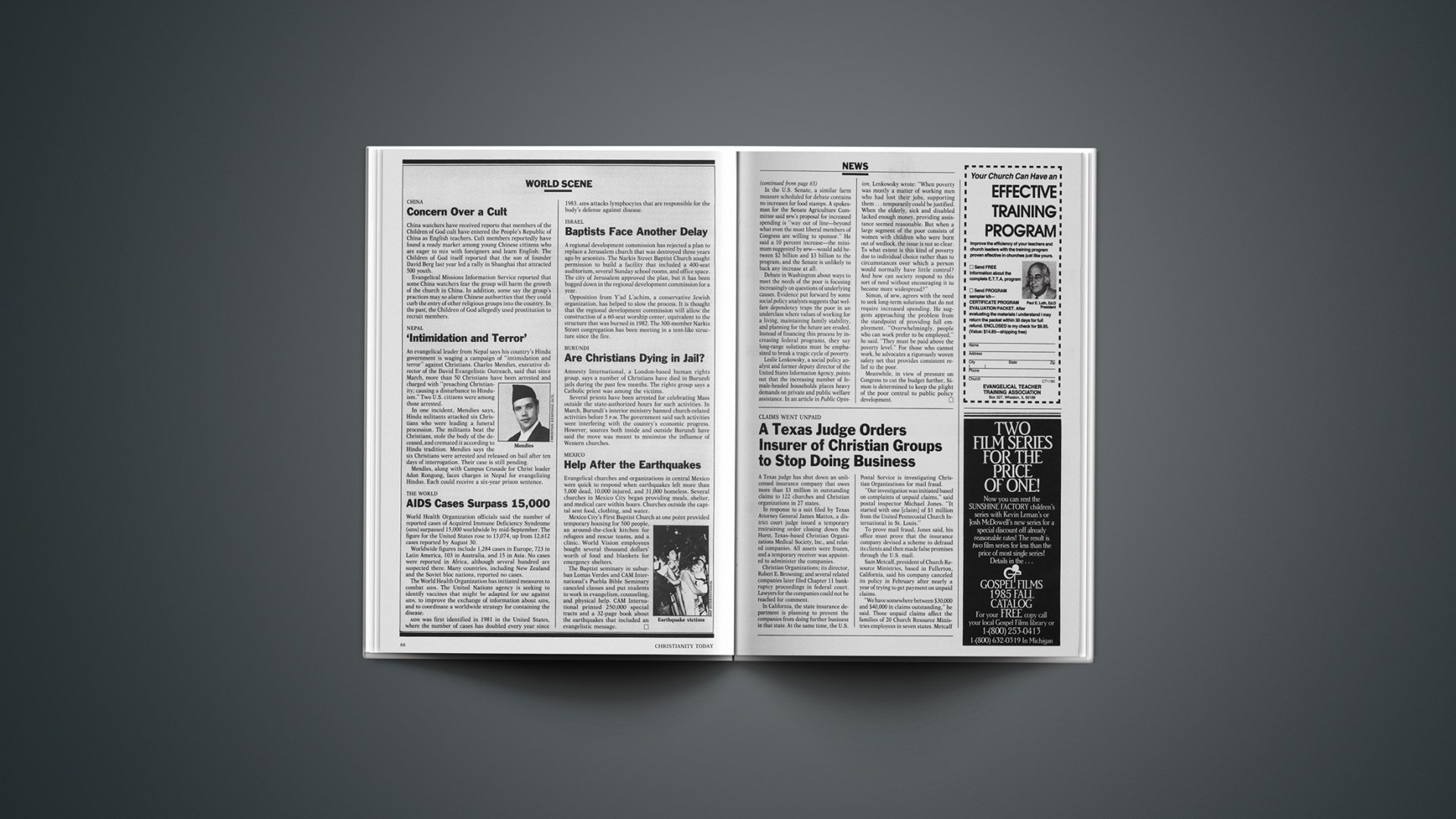During an unusual meeting, some 400 churchmen hammer out a proposal for reducing tensions.
A recent reconciliation meeting involving 400 clergymen in Pietermaritzburg, South Africa, brought together Dutch Reformed Church leaders and staunch opponents of apartheid. They organized a national day of prayer and repentance that was held last month, and issued a “Statement of Intent” calling on the South African government to take steps to end its official policies of racial separation.
Leading South African black churchmen, including Anglican Bishop Desmond Tutu, participated in the “National Initiative for Reconciliation.” A total of 47 denominations were represented. Most significant, according to participants, was the involvement of more than 60 Dutch Reformed churchmen.
Samuel Hines, pastor of the Third Street Church of God in Washington, D.C., was invited to the meeting because of his involvement in reconciliation efforts in South Africa since 1978. “From my perspective, the most hopeful sign was the openness and honesty of the Dutch Reformed Church people,” he said. “It’s the thing I’ve been praying for and hoping for, and still it took me by surprise.”
The Dutch Reformed Church in South Africa has been responsible for promoting government policies of apartheid and using Scripture to rationalize a system of keeping the races separate. Tutu, in an address to the participants gathered at Pietermaritzburg, said, “I doubt that anything significant can take place in South Africa without the white Dutch Reformed Churches.”
Their willingness to participate arose from increasing outspokenness against apartheid among some of their own theologians. Also, according to Hines, recent uprisings in South Africa and that country’s state of emergency “have become a kind of writing on the wall. The Afrikaner has never been more uncertain of the future than he is today. He realizes that the present system is not going to be allowed to continue. Blacks are at the end of their patience, and the business community is pressing for change.”
The meeting was arranged by Africa Enterprise, an evangelistic, interdenominational group headed by Michael Cassidy, a South African. By expressing unity among South African Christians across denominational, ethnic, and political boundaries, the reconciliation meeting offers “a sign of hope for our nation at this time,” according to the document it produced.
“We give thankful testimony to God that a deep thing has happened to us in this process as we have struggled under God with many hard and complex issues and found an astonishing measure of unity where formerly we knew little but division,” the letter continues. Six areas of activity were identified for a sustained reconciliation effort. They include evangelism; prayer and fasting for peace and justice; creating opportunities for interracial worship, fellowship, and discussion; preparing people to live in a “changed and totally non-racial land”; visiting with other Christians across designated residential boundaries; and convening regional gatherings of Christian leaders.
A delegation of participants presented requests to South African president P. W. Botha, asking for an end to the nation’s state of emergency, which has imposed harsh, police-state conditions throughout the country. The release of political prisoners, talks with authentic leaders of South African population groups, a commitment to developing a common educational system, and elimination of all forms of legislated discrimination were requested as well.
In his opening statement to the church leaders, Cassidy said, “God has called us here … to be a third race and a third force operating between a lethally dangerous and embattled white conservatism and an equally dangerous black revolutionary violence which could irreparably tear our social fabric into pieces.” He called on church leaders to be willing to “cross the political rubicons ahead of the political leaders and not expect politicians to cross rubicons even before the church has successfully done so.
“Once and for all,” Cassidy said, “the church has got to leave the wilderness of racism, discrimination, and prejudice and set its feet firmly on the path towards a single country and a single citizenship.”
Hines, of Washington, D.C., said the meeting reflected a sense of dependency on the Holy Spirit as “people were able to sit down and listen to each others’ stories and hear each other cry.” The church in South Africa, he said, “could become a model for the rest of us” in resolving racial discord.










